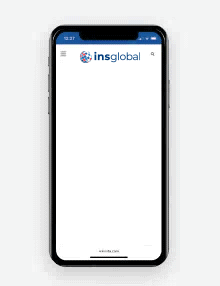When hiring in the Philippines, employee background checks can play a pivotal role in ensuring the integrity and suitability of candidates for various roles. As businesses expand their operations and look at hiring local workers, understanding the details of conducting employee background checks in the Philippines is often a key step.
In this comprehensive guide, we’ll delve into how employers can perform legally compliant employee background checks in the Philippines, covering relevant laws, common uses, and 3 crucial mistakes to avoid.

Tired of scrolling? Download a PDF version for easier offline reading and sharing with coworkers
What are Employee Background Checks?
Whether done in your current country or abroad, employee background checks are an important process used to verify prospective employees’ credentials, employment history, educational background, criminal record, and other relevant information. They usually take place towards the end of the hiring process, after shortlisting, due to their time-intensive nature.
Employee background checks in the Philippines or elsewhere may not be necessary for every hiring process but can be a useful tool for assessing a candidate’s suitability for a particularly sensitive role or mitigating risks associated with potential misconduct or dishonesty.
What You Should Know Before Running Employee Background Checks for Employers in the Philippines
Before initiating employee background checks in the Philippines, employers must be aware of both local best practices as well as legal and ethical considerations surrounding this process.
Are Background Checks Legal in the Philippines?
Yes, background checks are legal in the Philippines in most cases. Employers can conduct background checks as part of their hiring process if they need to verify the skills and history of job applicants. Usually, these checks will include looking into employment history, educational background, and criminal records.
However, employers must ensure that any employee background check in the Philippines complies with the national Data Privacy Act of 2012 (Republic Act No. 10173). The act governs the protection of personal data, including data that is commonly gathered during a background check in the Philippines.
To legalize the process, employers must, therefore, obtain the consent of a job applicant before conducting a background check and must make every effort to handle any collected data securely. Additionally, all information gathered should be relevant to the job position and should not be used to discriminate against applicants.
What Types of Background Checks Are Illegal in the Philippines?
In the Philippines, while background checks themselves are legal, there are certain types of checks and practices that are restricted or illegal, including:
Discriminatory Background Checks – Any employee background check in the Philippines that could lead to discrimination based on protected characteristics like race, color, sex, age, religion, political opinion, national or ethnic origin, marital status, or physical disability is illegal under the Philippine Constitution.
Unauthorized Access and Privacy Violations – Under the Data Privacy Act of 2012, accessing an individual’s personal information as part of an employee background check in the Philippines without first obtaining explicit consent is illegal. Employers must obtain clear consent from a candidate before conducting any background check.
At the same time, the following may be legal in some cases but must be done with extra steps:
Credit History Checks – While not outright illegal, any kind of financial or credit history checks in the Philippines must be handled with particular care. An employer must first be able to show a legitimate reason related to the job position to check an applicant’s credit history.
Medical Records and Drug Testing – Conducting medical checks in the Philippines or drug testing without an applicant’s consent or without relevance to the job is considered illegal. Employers must follow specific guidelines and regulations when conducting these types of employee background checks in the Philippines, just as in most countries.
Common Industries Using Employee Background Checks in the Philippines
Many industries in the Philippines regularly conduct background checks as part of their hiring process for a variety of reasons. These include:
- Business Process Outsourcing (BPO) – The BPO industry, which includes key services like call centers, customer service, and back-office operations, relies heavily on background checks to ensure that companies are following legal guidelines around employees handling sensitive customer information.
- Finance and Banking – Because of the incredibly sensitive nature of data involved in financial transactions and the regulatory requirements associated with this industry, finance and banking institutions in the Philippines must prioritize background checks to safeguard against potential problems.
- Information Technology (IT) – With the rapid growth of the IT sector in the Philippines, IT companies are often keen to perform background checks that verify a candidate’s education, experience, and skillset. Similarly, technical or highly skilled industries such as the medical or engineering sectors will often use employee background checks in the Philippines for the same reason.
Types of Employee Background Checks in the Philippines
Employee background checks in the Philippines can be used to look into various aspects of someone’s background, including:
- Identity Verification – Confirming a candidate’s identity through official documents or systems such as IDs or passports.
- Employment History – Including a range of practices, like looking into a candidate’s work history, past employers, job titles, dates of employment, and reasons for leaving previous positions. This can be useful for looking at gaps in employment, potential conflicts of interest, or verifying the presence of key training and skills.
- Educational Background – Validating a candidate’s educational qualifications, degrees, diplomas, licenses, and certifications.
- Criminal Record Check – Checking whether a candidate has a criminal record through relevant databases.
- Reference Checks – Contacting a candidate’s references. While often similar to an employment history check, this is particularly useful when gathering insights into their work ethic, skills, and character to be sure about a candidate as a potential fit in a team.
3 Big Mistakes to Avoid When Performing Employee Background Checks in the Philippines
Failure to Communicate
Not obtaining a candidate’s explicit consent before conducting background checks in the Philippines can quickly lead to legal repercussions due to the violation of privacy rights. Potential employers must ensure they have written consent from a candidate before starting any checks.
Similarly, not communicating the findings of background checks with a candidate after performing a check or failing to provide an opportunity for the candidate to explain or dispute inaccuracies can also lead to misunderstandings and potential legal disputes.
In general, open communication at every stage helps maintain fairness and transparency in the hiring process.
Discriminatory Practices
Asking inappropriate or discriminatory questions during a background check process (including inquiries about age, gender, marital status, religion, or political beliefs, etc.) is not only strictly prohibited but is an easy way to offend potential candidates.
Conducting checks that are not relevant to the job position can also be seen as invasive and unnecessary, in addition to being potentially discriminatory. As a result, Employers should always tailor their background checks to the specific needs and responsibilities of the job.
Not Following Procedures Fully or Correctly
While it might be seen as timesaving, relying solely on online databases or incomplete information during background checks can lead to inaccuracies and seriously misinformed hiring decisions. Employers should always verify information through multiple sources, such as direct contact with previous employers or educational institutions, to ensure accuracy and reliability.
Equally, failing to comply with current local laws and regulations, such as the Data Privacy Act of 2012, as well as not staying informed about relevant legal updates, can lead to serious delays or legal problems.
Finally, not maintaining proper documentation of the background check process, including candidate consent forms and verification records, can cause problems if the process is challenged. Keeping thorough records before, during, and after employee background checks in the Philippines helps demonstrate compliance and transparency.
Conclusion – How You Can Run Employee Background Checks Simply and Safely with INS Global
Performing compliant employee background checks in the Philippines requires expertise and familiarity with local requirements, and the process often benefits from working with experienced professionals.
At INS Global, we specialize in providing truly comprehensive HR solutions to companies expanding into the Philippines and 160+ other international markets. With the extensive experience provided by our teams of expert advisors, we can simplify the background check process, ensure compliance with local laws, and help you make informed hiring decisions with confidence.
Contact us today to learn more about our services and how we can support your hiring needs in the Philippines and beyond.


SHARE